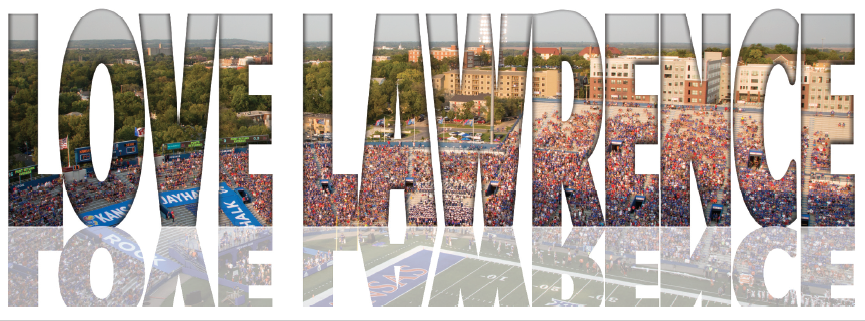Lifelong Learning for Campus and Community, KU offers many opportunities for seniors and their families to stay engaged in education.
| 2018 Q2 | story by Eliot Reeder | photos by Steven Hertzog

The Hall Center for the Humanities
Among the great many factors to assess when choosing a community in which to retire, a common consideration listed in recent publications by –Forbes, Kiplinger– and the AARP is the opportunity for lifelong learning and continued intellectual stimulation. College towns have become a popular destination for seniors seeking a dynamic atmosphere, diverse populations and a variety of cultural events.
Research shows that pursuing continued education and learning after retirement has a major impact on health, wellness and social standing. Attending classes, lectures and events can help fill newfound free time with hours of engaging activity. Learning about new topics and developing skills keep the mind sharp, and attending community events allows seniors to stay socially engaged and provides opportunities to network and meet new people.
In addition to University of Kansas (KU) tuition and campus fee waivers available to non-degree-seeking state residents older than 60, there are several other KU entities offering free and open-to-the-public educational programs and events for retirees and their family members to enjoy.

Natural History Museum
The Biodiversity Institute and Natural History Museum
The KU Biodiversity Institute and Natural History Museum features live-animal exhibits, a large wildlife diorama and an astonishing array of fossils and North American wildlife. The museum is home to four floors of public exhibits with snakes and insects; vertebrate and invertebrate fossils; parasites and microbes; and the flora and fauna of the Great Plains. Dozens of science outreach programs are offered annually at the museum and throughout the community. Discovery Days, which occur periodically on Sundays and summer weekdays, feature hands-on science activities geared toward school-aged children and their families. There are also talks for adults such as Science on Tap, held several times a year at the Free State Brewery.

Spooner Hall
The Commons
The Commons at Spooner Hall was opened in 2007 as a collaborative partnership between the Biodiversity Institute, Spencer Museum of Art and Hall Center for the Humanities. It serves as a space on campus devoted to interdisciplinary studies that focus on the three main continents of the academic world: science, arts and humanities. It hosts a variety of events, art exhibits, lectures and academic workshops. This past spring, the Commons welcomed a series of internationally acclaimed poets at Liberty Hall who drew wonderful crowds for readings and discussion. The Commons is currently participating in the nationwide public art project –Pledges of Allegiance–, commissioned by CreativeTime, a New York–based public arts nonprofit. The project is a serialized commission of 16 flags, each created by an acclaimed artist to reflect the current political climate.
The Hall Center for the Humanities
The Hall Center’s collateral mission is to sponsor special programs that engage the university and the wider community in dialogue on issues that bring the humanities to bear on the quality of life for all citizens. It creates public events on and beyond campus that seek to understand our past, present and future, our values and identities, and the essential issues we face as individuals and communities.
Founded in 1947, the Hall Center’s Humanities Lecture Series is the oldest-running series at KU and continually brings fascinating authors and researchers to Lawrence each year. More than 150 eminent scholars from around the world have participated in the program, including author Margaret Atwood, scholar Henry Louis Gates Jr., actress and playwright Anna Deavere Smith, poet Terrance Hayes and sociologist Matthew Desmond. The series is free and open to the public, and provides an excellent opportunity to hear some of the greatest authors, intellectuals and researchers of our time speak about their work. Additionally, many of the evening lectures are accompanied by next-day morning events (with free coffee and pastries) that allow audience members to engage in conversation, get books signed and meet the speakers face-to-face.
The Spencer Museum of Art
With a diverse collection of more than 45,000 art objects and works of cultural significance, the Spencer Museum of Art serves more than 100,000 visitors annually. The museum presents its collection as a living archive that motivates object-centered research and teaching, creative work and transformative public dialogue. A constantly revolving exhibition series is open to the public six days a week, and the museum also facilitates arts engagement and research through special film screenings, musical and dramatic performances, artist lectures, children’s activities and community arts and culture festivals throughout the year. In addition to a wide array of general programming open to the public, the museum periodically hosts “Senior Sessions,” informal gallery talks that explore specific topics or questions, open to everyone but designed specifically for retirees.

